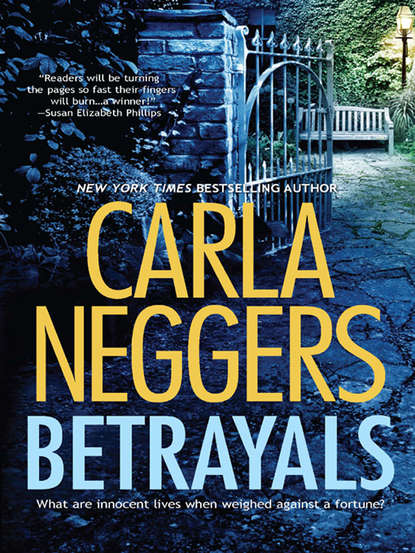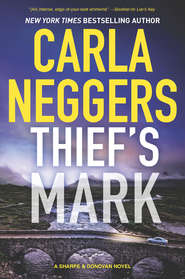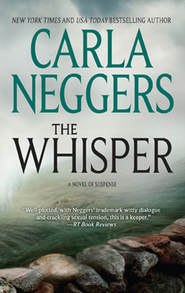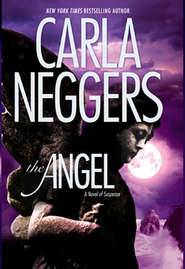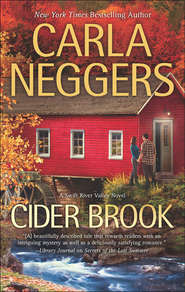По всем вопросам обращайтесь на: info@litportal.ru
(©) 2003-2024.
✖
Betrayals
Автор
Год написания книги
2018
Настройки чтения
Размер шрифта
Высота строк
Поля
Thomas Blackburn escorted his son’s body and that of Benjamin Reed back home to Boston. Three months before, Benjamin had hired Blackburn Associates for advice and information on establishing his new construction firm in South Vietnam. He’d started Winston & Reed with his wife’s money and meant to make a success of it, and he thought the Blackburns could help. Halfway between Thomas and Stephen in age, he had been friends with both men.
The inquiry into the ambush cleared Thomas of specific wrongdoing. He’d planned the excursion into the Mekong Delta and had rushed Stephen and Benjamin into executing it, but he couldn’t have known the Vietcong would attack.
Or could he have?
There was rampant speculation that Thomas, in his zeal for information, had originally arranged a meeting with a group of Vietcong the day of the ambush. He canceled out—chickened out, some said—at the last minute and allowed the excursion to go on without him, apparently hoping nothing would happen if he didn’t show up. Instead the Vietcong attacked, and three people were killed. Thomas had believed his position would compel the Vietcong guerrillas to leave him and his people alone.
Everyone from his daughter-in-law to a host of American military advisors and President Kennedy himself expected Thomas to defend himself against charges that he’d been arrogant or just plain naive.
He didn’t.
“I accept,” he told Jenny, Annette, colleagues, clients, politicians, military men and reporters, “full responsibility for what happened.”
They let him.
He went back to Indochina only briefly after burying his son. His company quickly went bankrupt, and President Kennedy decided against what would have been the bold move of naming Thomas Blackburn his new ambassador to Saigon. Showing no outward sign that any of this was more than he expected or felt he deserved, Thomas continued to refuse to answer the speculative charges against him, but simply retired to his house on Beacon Hill, taking up gardening and indulging his passion for rare books.
By summer, Jenny had recovered enough from the shock of losing her husband to realize she couldn’t continue to live in her father-in-law’s house. She would bump into Annette Winston Reed, also made a widow that terrible day, on the streets and have nothing to say. She could see her own children becoming ostracized, confused because the Blackburn name no longer had the same resonance it once had had. And there was no money. She had six small children and a father-in-law who’d become a pariah, and Eliza’s late-eighteenth-century fortune would stretch only so far.
But more than anything else, there was Thomas himself. Jenny could no longer face him every morning over coffee, listen to him scratch in his garden instead of doing something. Looking for a job. Fighting back. Starting over. Anything.
Finally, she knew she had to make a life for herself and her children away from Boston. She called her father. Of course, he told her, she could come home; he had always hoped she would.
She rented a truck and hired a couple of high school boys from South Boston to help her load it with the few things she and Stephen had accumulated during their nine years together. Her father would arrive later that morning and drive it to Florida, with Rebecca and Nate up front with him. Jenny would take the other children in the car.
Thomas watched stonily from the sidewalk. When Jenny had announced she was moving back “home,” he’d refused to take her seriously. Yet there was the truck blocking the narrow street and the children pouring out to holler and run about in its empty cargo space. He was forced to admit the inevitable.
“You’re running away,” he told his daughter-in-law.
“So what if I am?” She had decided not to let him put her on the defensive. “At least now the children will have air.”
“Air? There’s plenty of air in Boston. Take them up on the roof and let them breathe all the air they want. And what’s the matter with the Esplanade? The children can ride their bikes on the riverbank whenever they want. I’ll take them myself. And there are parks all over the city—too many, can’t afford the upkeep.”
Jenny knew he was baiting her, if relatively harmlessly. “You believe children should play in the streets?”
“Why not? I did.”
Pity you weren’t run over, she thought. But then she’d never have had Stephen, or their children. And she hated herself for hating him; it was perhaps the best reason for leaving.
“What do you think you’ll find in Florida besides alligators and poisonous snakes?”
“Alligators and poisonous snakes,” she snapped back, “are better than a lot of what you’d find on Beacon Hill.”
He smiled faintly. “Touché, my dear.”
She sighed. “It’s too late to argue, Thomas. I’m going.”
“I know.” He touched her arm. “I wish things could be different. I hope you know that.”
“I don’t, Thomas. I only know that my husband’s dead and you’re willing to take responsibility for his death when no one asked you to. Now people are saying you were a communist collaborator, you’re naive, you were duped, you were arrogant. If you’d considered me and the children, maybe you’d defend yourself.”
“To what end?”
She jerked her arm away, scoffing. “It was difficult enough being a Blackburn before this tragedy. Can you imagine what it’s going to be like now? Think of your grandchildren, Thomas. Think what it’s going to be like growing up knowing their grandfather’s accepted full responsibility for the deaths of three people, including their own father. Even leaving Boston isn’t going to make that any easier to deal with.”
Thomas pulled in his lips a moment, then sighed. “You’re right, of course.”
“But that doesn’t change anything, does it?”
“I’m afraid it doesn’t.”
“The Blackburn pride,” she said bitterly, and turned away so that he wouldn’t see her cry.
Without a word, Thomas went back inside. He didn’t come out when Ian O’Keefe arrived and helped Jenny finish packing, and finally she found him in his garden, pinching off wilted daylily blossoms.
“You’ll come visit, won’t you?” she asked.
He turned to her. “Not,” he said, “if what you want to do is forget.”
“It isn’t.”
“Then perhaps I’ll come. Invite me.”
But she never did.
Ten
By noon the day after her picture had appeared on newsstands all over the country, Rebecca gave up all hope of getting any work done. Not that she’d tried that hard. There wasn’t a whole lot to do if she wasn’t going to get out there and take on new assignments. She’d thrown out her red nail polish, used up a dozen cotton balls and ten minutes getting it off her nails, and had done a few bad sketches of the replica of the Boston Tea Party ship just up the road at the Congress Street Bridge.
And answered the telephone.
It was ringing when she’d unlocked her door at eight-thirty and continued to ring most of the morning. She turned down interviews with two Boston newspapers and a regional magazine, but agreed to answer a few questions by a journalism student at Boston University who wanted to know about one of her school’s famous almost-alumni. There were three calls from businesses in metropolitan Boston who offered her assignments; she took their names and numbers and said she’d get back to them. Maybe. The president of a New York advertising firm called to talk to her about becoming his art director. He said he knew her work and had thought about tracking her down for several years, but when he saw The Score at the train station on his way home last night, he decided he had to call. Rebecca listened to his pitch and realized why he had gone in to advertising. She was tempted, told him so, and took his name and number.
An old boyfriend from Chicago called and said he had to be in town on business next weekend, how ’bout dinner? She told him no, but thanks. After seeing Jared Sloan’s picture the last thing she wanted to think about was men.
Half a dozen nonprofit organizations called with very polite, understated requests for money. Two she recognized as reputable and promised them checks, two she hadn’t heard of and asked them to send her more information and two she thought sounded made up and told them to forget it.
And that was enough phone calls for one morning. She put on her message machine and headed over to Museum Wharf, where she stopped for lunch at the Milk Bottle, shaped like its name and located in the middle of the brick plaza in front of the Boston Children’s Museum. She took her hummus salad to a stone bench to watch the crowd, mostly kids, tourists and young, white-collar types looking for a quick meal they could eat outside. It was a gorgeous day.
When Rebecca got up to pepper her hummus, about twenty preschoolers gathered around her bench for a carefully supervised picnic. She remembered taking her youngest brothers on picnics down by the pond at home in central Florida, teaching them about snakes and showing them how to catch frogs and lizards. In her room at night, she would describe all their activities in detailed letters to her grandfather in Boston.
She had hated Florida at first. The oppressive summer heat, the big, strange rooms of Papa O’Keefe’s twenties-style house, the pond in the backyard, the endless citrus groves, the lack of neighbors, the spiders and snakes. It was all so different from Beacon Hill. But her mother had promised her she would come to love the place, and she had, in her own way. That didn’t stop her from wondering what her life might have been like if they’d been able to stay in Boston. Would she have turned out to be another in a long series of impoverished, holier-than-thou Boston Blackburns? At least, she thought, their “wilderness exile,” as Thomas Blackburn called it, had spared her that.
After she took a few more bites of her salad, Rebecca tossed the leftovers and started back toward Congress Street. She’d return to her studio and take on all the assignments she could, maybe think about the advertising job in New York. She needed to work.
A man’s face came at her from the throng crossing the Congress Street Bridge, past the replica of the Boston Tea Party ship, and she stopped cold.
“My God,” she heard herself whisper.





